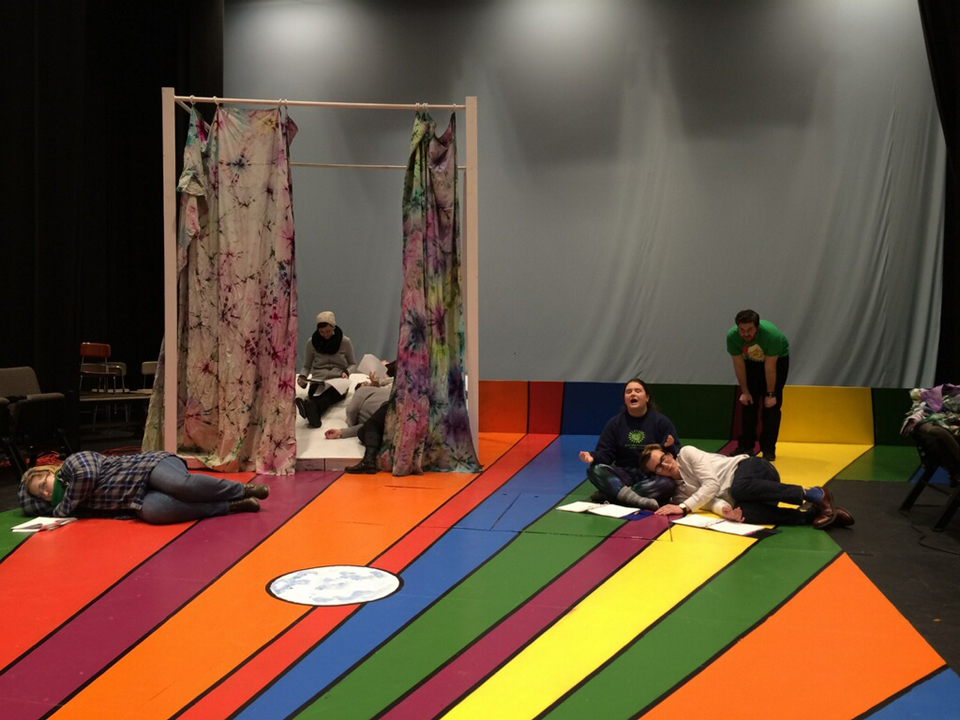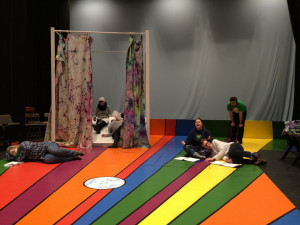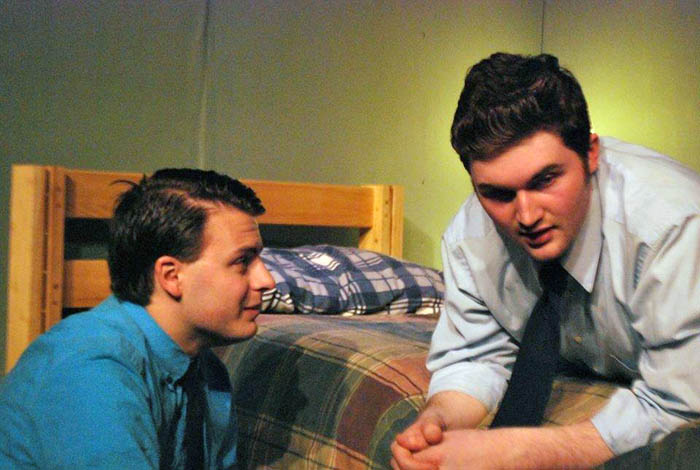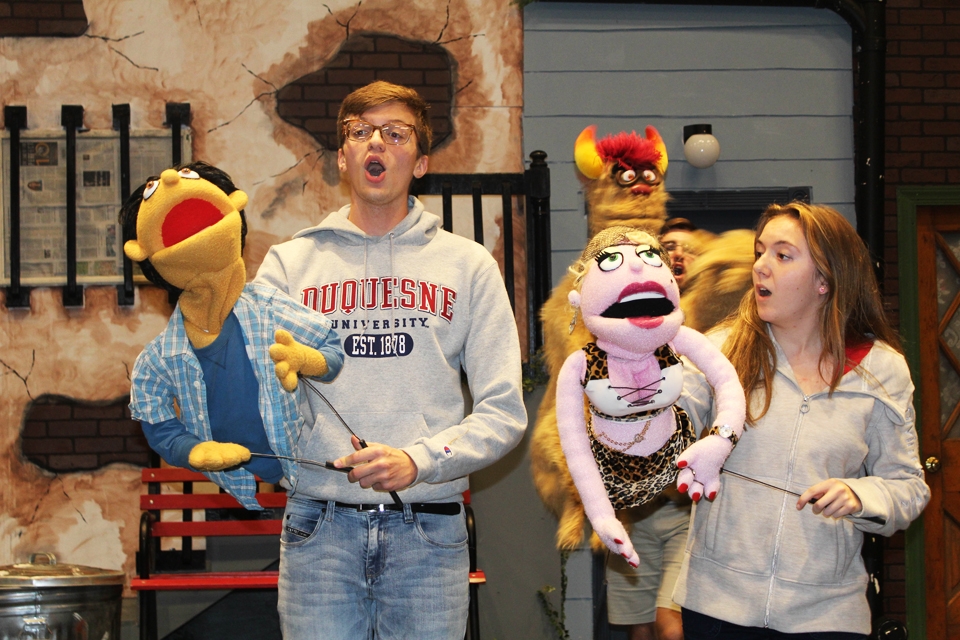
By Zachary Landau | The Duquesne Duke

The Red Masquers prepare for their first rehearsal of “A Midsummer Night’s Dream.” The play is the third one of the current season and features a psychedelic take on the classic Shakespearean story. The show has performances until Feb. 21 in the Genesius Theater.
I really liked the Red Masquers’ production of “A Midsummer Night’s Dream.” Funny from beginning to end, this show is a spectacular example of comedy at its finest.
Without delving too far into the plot, the story, in essence, is about an unrequited love. Like most Shakespearean plays, there are many intertwining threads that are too complicated to summarize succinctly. However, the story is interesting in how it seems to simultaneously be a straightforward romantic comedy as well as a parody of the genre.
However, the plot actually matters very little in this production; the story in “Midsummer Night’s” acts more like a forum for the comedy to take place in, offering an excuse for the jokes to take place rather than being supported by them.
And the show is legitimately funny. While it had a slow start (which is seeming like a recurring pattern with Red Masquers’ shows in recent memory), by the time the story moves the characters into the woods populated with fairies, the audience could not stop laughing. While not all the jokes land (which is due more to the fact that half the dialogue is almost incomprehensible), the ones that did always warranted a hearty response, with the acting troupe in particular being hysterically campy and delivering all of their lines with reckless abandon.
Indeed, all of the acting is superb across the board. No character stands out as the worst or the best, with each actor’s hammy performance enhancing the experience tenfold. Watching the actor’s throw themselves around the stage and chewing the scenery was delightful and certainly the reason to see the show.
The set itself was also quite spectacular and carried the production’s ‘60s theme perfectly. Again, this is partially because the actors felt so free to play with the set dressing. Special attention was given to the drapery that hangs over the audience with it flashing colorful lights during the spellcasting scenes, and the effect was simultaneously charming and effective.
Speaking of the ‘60s theme, the aesthetic changes it brought were welcomed. Splitting the costumes between tweed jackets and hippie dresses for the humans and fairies, respectively, was clever and helped enhance the magical feel of the production. Indeed, depicting the fairies as wandering flower children was almost an inevitability and borders on the trite, but, again, they pull it off because of the enthusiasm of the actors to just go with it.
The only real criticism that can be levied against this production are the singing interludes. They were not bad, per se, but they certainly felt weird and out of place. The only time they felt like an integral part of the production was when they performed for the other fairies, and that was because they were used for comical effect. Otherwise, they felt like an afterthought, too slow and too different from the rest of the production to warrant much attention.
That said, “Midsummer Night’s” dream is still an excellent show. The actors’ performances were refreshingly funny and worth spending an evening with. A genuinely comical show, I would encourage anyone to go and see it.




